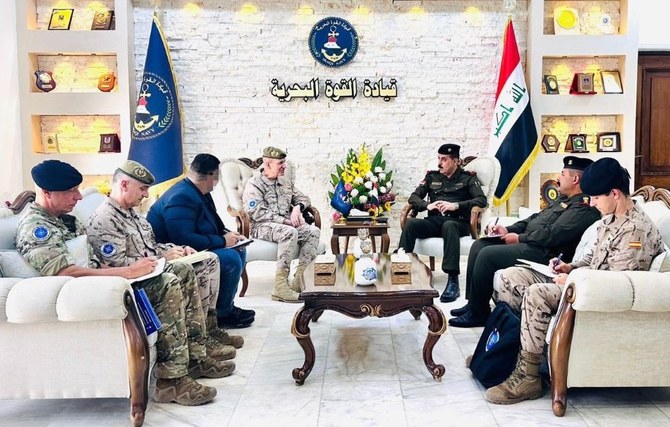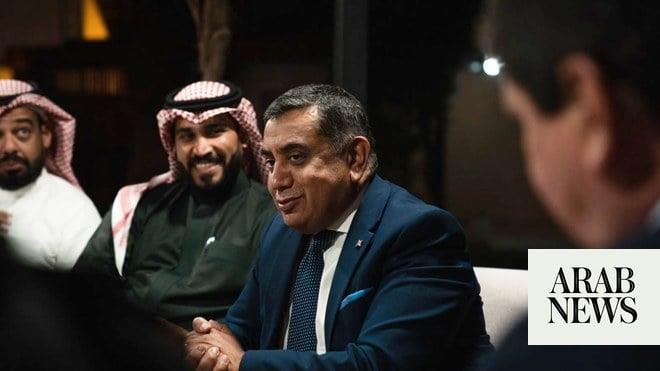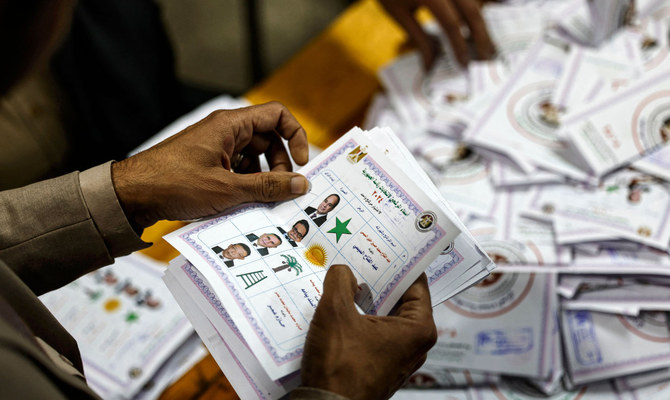
NATO will this year mark significant anniversaries for both its Mediterranean Dialogue and Istanbul Cooperation Initiative — platforms through which the alliance has forged partnerships with Algeria, Bahrain, Egypt, Israel, Jordan, Kuwait, Mauritania, Morocco, Qatar, Tunisia and the UAE.
For decades, we have worked together on common security interests affecting the Euro-Atlantic area, the Mediterranean, the Gulf region and beyond.
Our cooperation over the years has been beneficial to all — in areas including small arms and light weapons, countering improvised explosive devices, crisis management, counterterrorism, civil preparedness, resilience and the “Women, Peace and Security” agenda.
NATO has contributed valuable expertise in the defense and security sector, including experience in military training and education, as well as in strengthening the interoperability of military forces. In turn, partner nations have helped enhance our understanding of regional security challenges.
We live in a more dangerous and competitive world, where security is increasingly global, not just regional. Russia’s war of aggression against Ukraine is a case in point — causing untold damage to Ukraine and creating Europe’s greatest refugee crisis since the Second World War — while also driving up food and commodity prices and making the world a more dangerous place.
Persistent conflict and instability across the Middle East, North Africa and Sahel regions are of great concern too. While NATO does not play a role in the Gaza conflict, individual NATO allies are working tirelessly to achieve a ceasefire and to deliver humanitarian aid.
We now all face the prospect of the Gaza war escalating into a wider regional conflict. Iran and its proxies are an enduring source of regional instability and pose a serious risk to NATO allies in Iraq and to maritime security in the Red Sea.
Russia and China’s growing presence across the Middle East and North Africa do not bode well for the region’s security. Moscow is promoting anti-Western and anti-NATO views, using mercenaries to fuel unrest and reinforcing its ties with Iran. Tehran is supplying weapons to help strengthen Moscow’s hand in Ukraine. For its part, Beijing is increasing its economic influence in Africa, expanding its military presence and buying up critical infrastructure to increase its control over the region.
Global challenges require global solutions. This is why NATO is adopting a global approach and working more closely with partners around the world, including in the Middle East and North Africa.
There is a lot we can build on. NATO has been present in Iraq since 2018, with a mission to support the Iraqis in strengthening their security forces and institutions. NATO is also present in Kuwait, where we have a regional center bringing NATO allies and Gulf countries closer together. Work is underway to establish a NATO liaison office in Jordan.
Looking ahead, we want to grow NATO’s engagement with the Middle East and North Africa even further.
Mircea Geoana
As we celebrate the 30th anniversary of the Mediterranean Dialogue and the 20th anniversary of the Istanbul Cooperation Initiative, we are looking to redouble our efforts to build a better, stronger and more secure world together.
Looking ahead, we want to grow NATO’s engagement with the Middle East and North Africa even further. We are looking for opportunities for more dialogue and closer cooperation with nations, international organizations and other relevant actors. Counterterrorism, maritime security, climate change, cybersecurity and demining are some of the practical areas where we can, and must, do more and better together.
At the NATO Summit in Washington in July, the alliance’s leaders will agree concrete recommendations to step up our security offer to partners. This matters for our shared security — now and into the future.
Mircea Geoana is Deputy Secretary-General of NATO. X: @Mircea_Geoana












